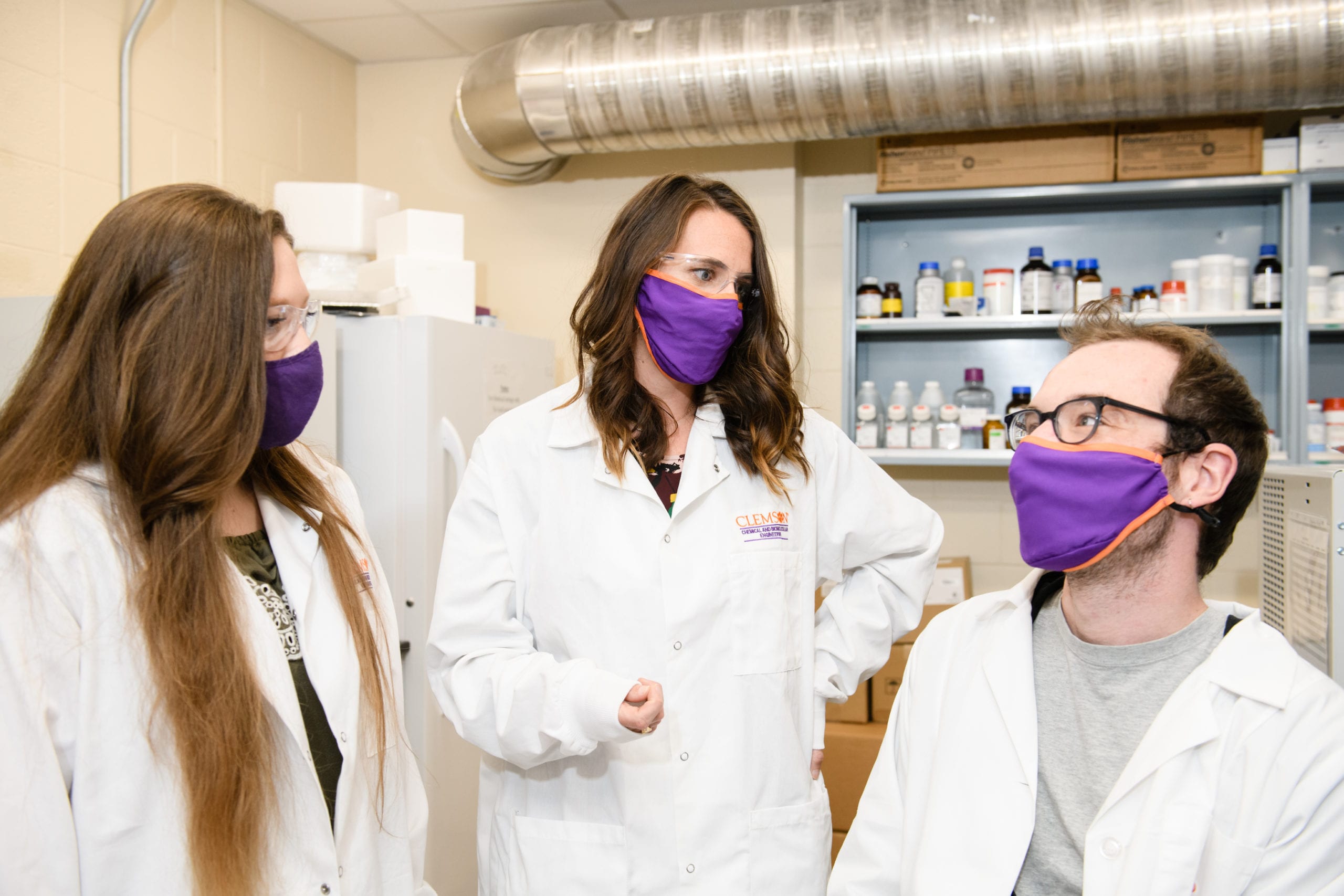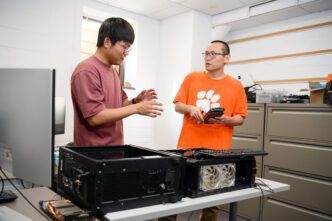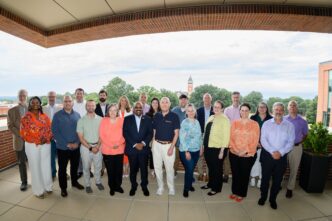Jessica Larsen of Clemson University has seen the awful toll that GM1 gangliosidosis takes on its young victims.
While in graduate school at Auburn University, Larsen began working with a 1-year-old boy as part of her research and watched as the rare brain disease ravaged his body, causing seizures and withering his muscles. The boy made it to 4 years old– the upper range of his life expectancy– before succumbing to the disease.
“It provided this massive motivation that we need to be doing something better,” said Larsen, now an assistant professor of chemical and biomolecular engineering at Clemson.
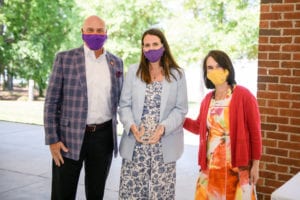
Larsen will have her chance. A new research project she is leading is aimed at finding new ways to diagnose GM1 gangliosidosis so that doctors can better determine the progression of the disease and offer the most effective treatment for its symptoms.
Larsen is receiving a $515,989 CAREER award from the National Science Foundation to fund her work.
“This is one of the nation’s highest honors for junior faculty members, and Dr. Larsen is highly deserving,” said David Bruce, chair of the Department of Chemical and Biomolecular Engineering. “I offer her my deepest congratulations. She and her team are well positioned to conduct impactful research, advance education and address unmet needs in a crucial area of health innovation.”
GM1 gangliosidosis is an inherited disorder that progressively destroys nerve cells in the brain and spinal cord, according to the National Institutes of Health. The disorder affects 1 in 100,000 to 200,000 newborns, Larsen said.
Symptoms can be treated, but there is no known treatment that slows the progression of the disease, according to the NIH.
GM1 gangliosidosis is caused by mutations in GLB1, a gene that gives the body instructions to make an enzyme called beta-galactosidase, according to the NIH.
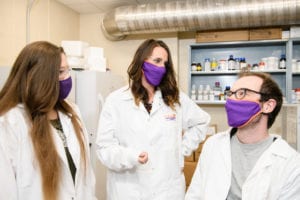
The enzyme resides in compartments of cells called lysosomes. In healthy people the lysosomes act like a stomach, breaking down molecules, including GM1 ganglioside, Larsen said. But in patients with the disorder, the lysosomes are malfunctioning, preventing the GM1 ganglioside from breaking down, according to the NIH.
The accumulation becomes toxic in tissues and organs, particularly the brain, and leads to destruction of nerve cells, according to the NIH.
Other enzymes become highly active in a futile attempt to make up for the missing beta-galactosidase, Larsen said.
“We’re trying to figure out with this CAREER award why that is happening and what that has to do with the progression of disease,”she said. “We’re looking at things we know happen throughout neurodegeneration, and we’re seeing if we can correlate some of these things with this overactive mechanism.”
Researchers then want to use what they learn to create a tool that diagnoses GM1 gangliosidosis and helps measure its progression, Larsen said. The research could also one day be used to develop new ways of delivering drugs to treat the condition, she said.
The project gives several undergraduate and graduate students a chance to conduct research in a field where they can see the impact they have.
“Being able to say you’re doing something to help these children gives a deep sense of meaning and drive,” Larsen said. “I think that’s a big part of why my students work so hard.”
The research also shows students the role chemical engineers can play in the medical field, she said.
Among those students is Bipin Paruchuri, a Ph.D. student who helped lay the groundwork for the CAREER award and will continue working on the project for his dissertation. He plans to pursue a job on a university faculty after graduation.
“This is definitely a very good foundation for my future research as a faculty member,” Paruchuri said. “This is a new technology that can be applied to different applications in drug delivery.”
Also as part of the CAREER award, Larsen plans to start a new educational program that was inspired by the distrust of science that she saw emerge in South Carolina during the COVID-19 pandemic.
The problem, she said, is that people may not know where to find reliable scientific information, and they may not trust the information they do find.
To counteract the knowledge gap, Larsen is developing a program aimed at helping high school science teachers introduce civic scientific literacy into their classrooms.
It starts with Clemson undergraduates. They will participate in literature reviews, journal clubs and weekly discussions over a year to increase their scientific literacy. Then they will then begin to create an educational module to teach what they learned to high school teachers.
Those teachers will conduct research in Larsen’s lab and participate in workshops that teach them to integrate the techniques they learned into their classrooms. Chris White will help develop the workshops.
Larsen is calling the program CoME and SEE SC, an acronym for Combatting Misinformation through Education and Scientific Experiential Exposure in South Carolina.
“We hypothesize that our program will increase student and teacher confidence in the reliability of scientific information by increasing knowledge of the scientific process,” she said.
The CAREER award is one of two major honors that Larsen received during the spring semester of 2021. She also received an Outstanding Woman Award in the faculty category from the Clemson University Commission on Women.
The award “annually honors individuals who have made outstanding contributions to improve the status of women,” according to the commission’s website.
“It felt validating,” Larsen said of the award from the commission. “I’ve been fighting pretty hard for women in this department and for changes in culture that can address issues with women.”
Larsen has had 45 undergraduates working in her lab, 33 of them women. She is also a cross country coach at Seneca High School, and the girls’ team has won state three times in a row.

